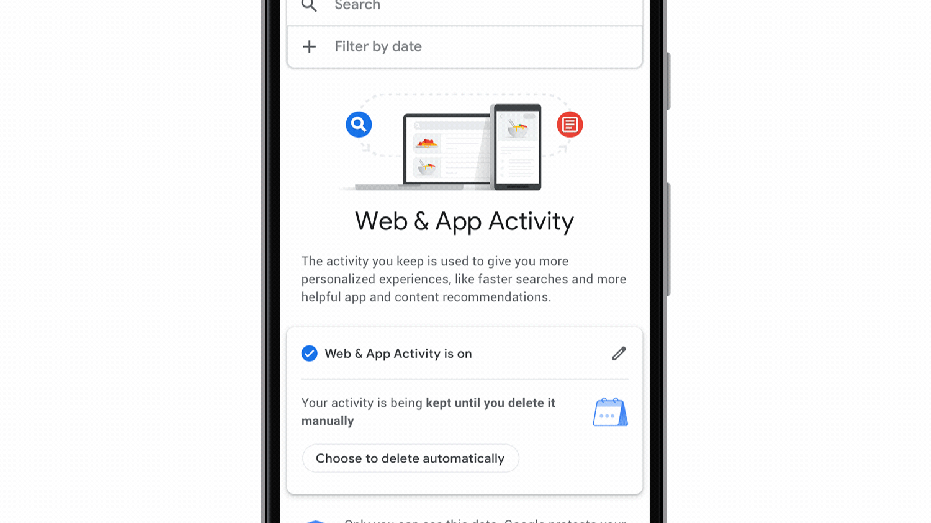How Google auto-delete works
Google can auto-delete users' web and app activity, as well as user location data, every 3 or 18 months
Google launched its auto-delete feature, which deletes users' location history and web browsing activity after three or 18 months, on June 24.
The tech giant introduced the feature last year after facing scrutiny from Congress for collecting users' location data and web browsing activity data. Prior to the auto-delete feature, users could manually delete this data.
"We continue to challenge ourselves to do more with less, and today we’re changing our data retention practices to make auto-delete the default for our core activity settings," Google CEO Sundar Pichai said in a June 24 blog post.
Users simply have to locate the feature in their Google account settings under the "Data & Personalization" page. From there, users can set their auto-delete functions under "Activity Controls."
GOOGLE STEERS USERS TO YOUTUBE OVER RIVALS
The feature, which can be applied to Google web and app activity, location history and YouTube history, helps users delete data automatically, rather than manually, so Google does not have access to that data for more than three or 18 months depending on users' preferences.
Auto-delete is a default feature on new Google accounts, Pichai wrote in the blog post.
GOOGLE ANNOUNCES NEW DIGITAL JOBS PROGRAM TO SUPPORT AMERICA'S ECONOMIC RECOVERY
For existing accounts that already had location history and web and app activity turned on, Google will not change the settings, but it will actively remind users "about the auto-delete controls through in-product notifications and emails" so they can determine which options are best for them.

Google auto-delete feature shown on mobile (Gif: Google's "The Keyword" blog)
Pichai noted in the blog post that Google does not sell user data from Google's apps to "anyone."
A $5 billion class-action lawsuit filed against Google in June accuses the tech giant of invading user privacy by collecting the search data of users browsing in "private" mode on the Google Chrome browser extension.
CLICK HERE TO READ MORE ON FOX BUSINESS
“Billions of times a day, Google causes computers around the world to report the real-time internet communications of hundreds of millions of people to Google," the complaint filed in San Jose reads.
A Google spokesperson told Reuters that the company clearly states it "might be able to collect information" about a user's browsing activity "each time you open a new incognito tab."




















